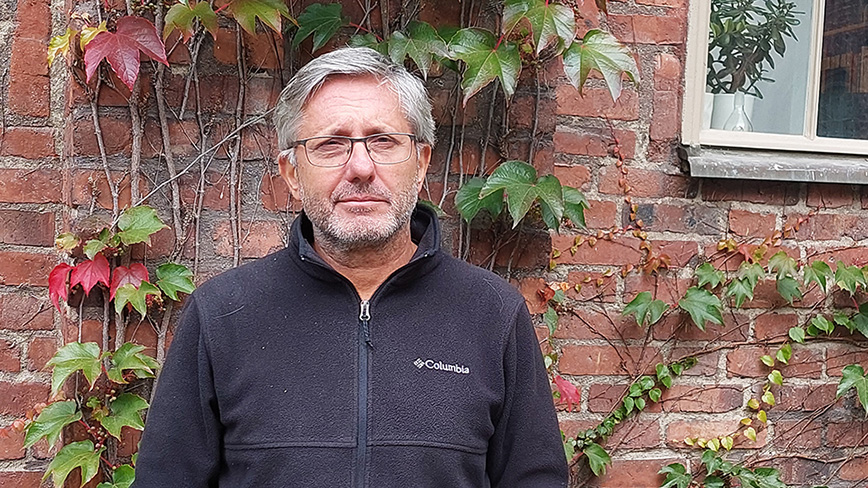István Furó: Our department is very heterogeneous

For the Department of Chemistry, the research evaluation RAE was decisive for the merger with the then Department of Theoretical Chemistry and Biology, even though the idea had already been there before.
According to István Furó, Head of the Chemistry department, the most important outcome of KTH's research evaluation RAE is the merger with the former department of Theoretical Chemistry and Biology (TCB) which was much smaller in size and has now become a division within Chemistry.
The collaboration benefits both, as Chemistry's research needs a critical mass. TCB, for its part, works in computational chemistry that could benefit from a better connection with the rest of the business, which is strong in experiments and applications. The same also applies in the opposite direction.
"Actually, what we are doing is not a response to Chemistry's RAE, but more to TCB's evaluation. It is very clear that we are interested in the same things, so it is quite a natural thought that TCB is part of a larger chemistry department. In TCB's report, it is recommended to actively seek collaboration partners and to be more involved in teaching. This is our way of meeting this," says István Furó.
But what did Chemistry's evaluation say?
“Kemi's evaluation did not make any real recommendations for ourselves, however it pointed out that we are poor and over-administered and it is clear that these are central problems and not the department's. What the state gives to KTH directly does not finance teaching and research but, in round numbers, only premises and administration. The model does not work and we cannot possibly do everything that is put on us. My constant wonder is why the model didn't collapse five years ago.”
What do you do at the department?
“There are different groups that do different things and everything depends on them. There is perhaps an idea of an institution with a head of department who controls what we research, but I don't do anything. There is no such thing, it gives a completely wrong image of an academic environment. People and groups do things and it's great if the organization doesn't get in the way. My role is to facilitate, to give people both a community and a framework so that they can concentrate on conducting good research and teaching, which is our raison d'être. But it is not that the institution as an organization DOES anything on this level.”
But if you were to describe your research area?
“We research molecules, what they do, how they can be designed, how they affect and how they are used to make materials, produce energy, or restore health. We study molecular aspects of everything.
The chemistry department mostly collaborates with its sister departments Chemical Engineering and Fiber and Polymer Technology. Previously, they formed the School of Chemistry at KTH and are the closest subject-wise, but collaboration also takes place with other departments such as Industrial Biotechnology.
"I feel that our department is very heterogeneous compared to other departments at the school and the research area is broad, we can do almost anything, which is not necessarily an advantage in the current environment with a preference for strategic thinking where we would have to focus our strengths in an area. We thereby try to agree on areas where most of us have an interest in contributing with our own expertise and research capacity. Such as the food area and the KTH-linked strategic initiative KTH Food, which Francisco Vilaplana, Head of Glycoscience, is the director of," says István Furó.
The centre's concept is about research on food and sustainability from various aspects – production, preparation, materials and health effects. The center must have a strong industrial connection, and Francisco already works closely with Oatly and Lantmännen, among others.
"Another concentrating idea is the Wallenberg Initiative Material Science for Sustainability, WISE. It is a new program in which most Swedish universities participate and it has, among other things, led to a faculty position at the department. This person will work with electrocatalysis for sustainability, such as how to produce hydrogen sustainably by using sunlight. The problem with a very heterogeneous environment with strong and proud traditions and associated high quality is that it is difficult to agree on something that is interesting to everyone. In these projects, we have the potential to gather a large part of the institution towards unifying goals," says István Furó.
Text: Sabina Fabrizi

